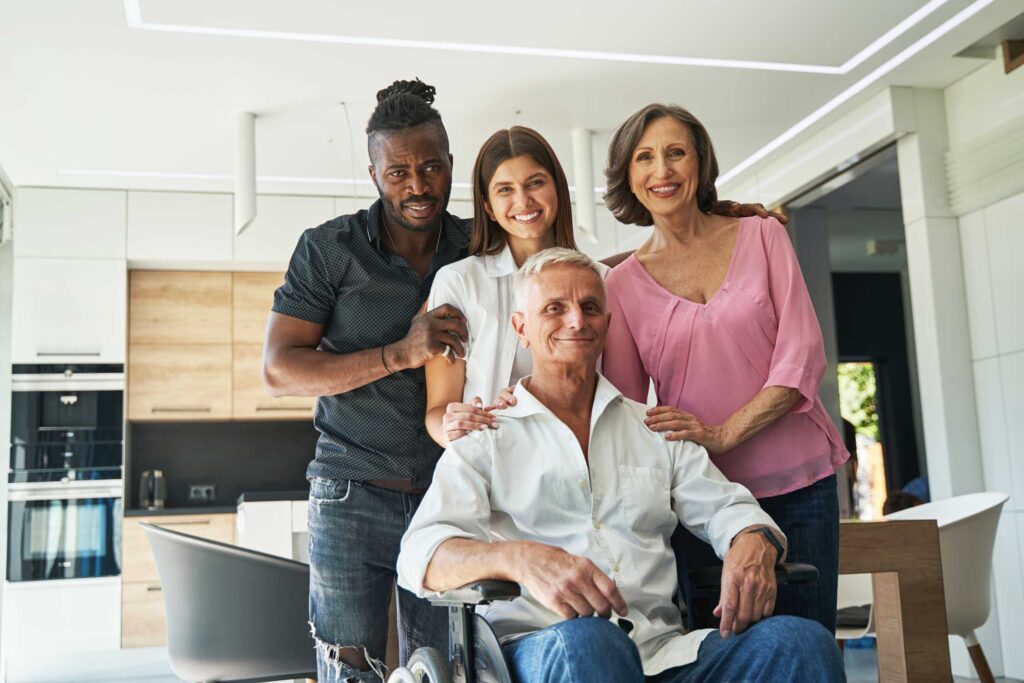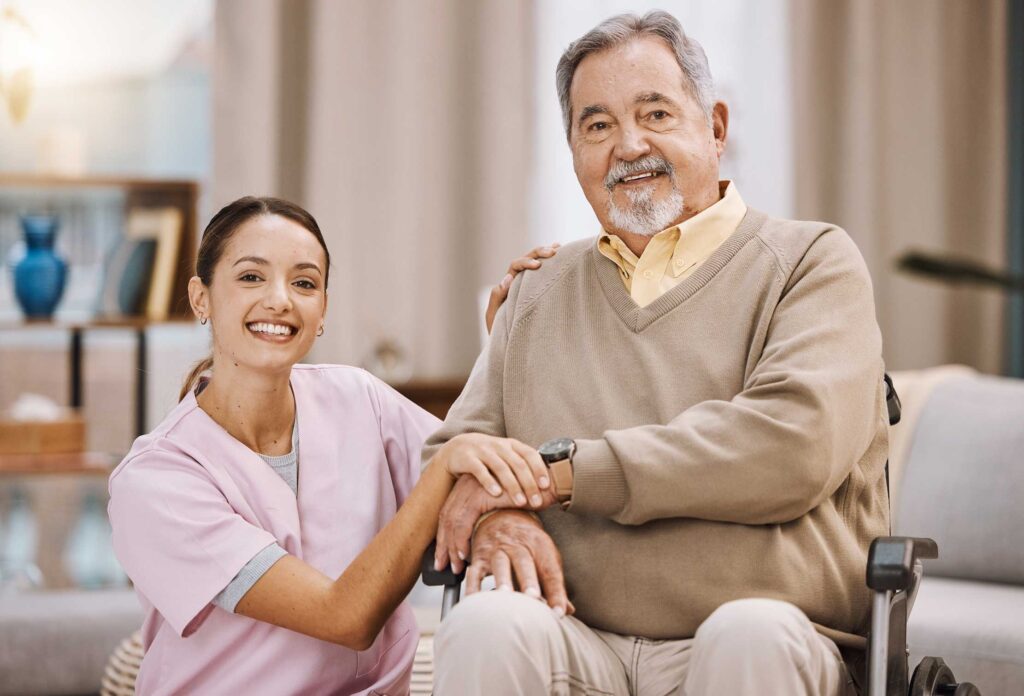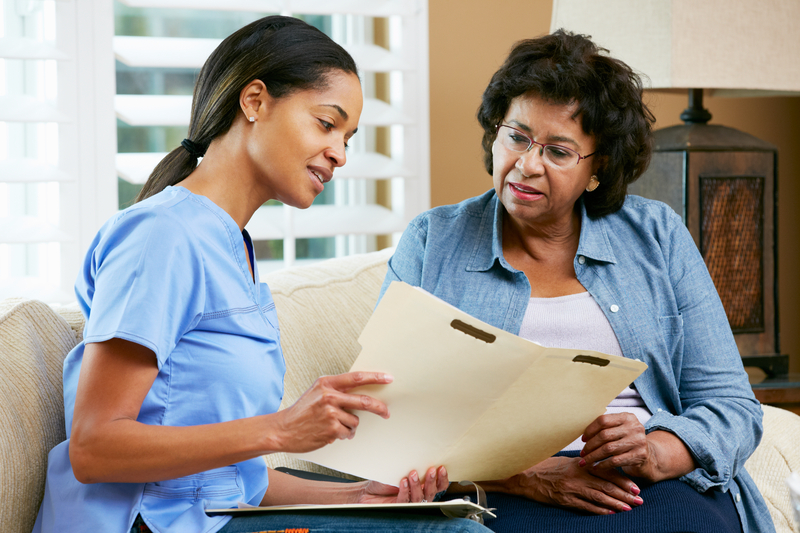More than 53 million Americans provide unpaid care to their family members today. Their loved ones’ needs become more complex and demanding as time passes. Many families now choose professional home caregivers rather than handling everything by themselves.
Finding trusted in-home care for your elderly parents is a vital decision. Professional caregivers bring specialized expertise that family members usually can’t provide. They help manage chronic conditions and give emotional support.
This piece will guide you through the essential steps to find and hire the right home caregiver for your loved one. Your family members deserve professional care that lets them stay independent at home.

Why Professional In-Home Caregivers Are Better Than Family Care
Families face a tough choice as their loved ones age: they must decide between providing care themselves or bringing in professional help. The natural instinct to care for family members deserves respect. Professional in-home caregivers, however, are a great way to get benefits that family caregiving rarely matches.
The emotional burden on family members
Caring for an elderly parent or relative creates complex emotional situations. Family caregivers often feel guilty, frustrated, and deeply sad even as they find satisfaction in providing care. The emotional toll runs deep. Caregivers must handle both their own feelings and those of their loved ones. Research shows that more than half of caregivers reported higher levels of stress, worry about the future, and anxiety. The line between being a family member and a caregiver becomes blurry and adds extra emotional pressure.
Professional training and expertise
Professional caregivers bring specialized training and certification that sets them apart from family members. Their education gives them the skills to handle many care needs – from simple daily help to managing complex medical conditions. These professionals can provide medical assistance that family members usually can’t. They also have more experience with challenging daily tasks that might overwhelm families, such as changing adult diapers and cleaning bodily fluids.
Preventing caregiver burnout
Caregiver burnout leaves people completely exhausted – mentally, physically, and spiritually. Studies reveal that 36% of caregivers deal with high emotional stress. Professional caregivers work in shifts and take scheduled breaks to recharge. Mayo Clinic’s research shows caregivers experience more stress than people who don’t provide care. Family caregivers often ignore their own health and well-being, which leads to serious health issues.
Maintaining healthy family relationships
The sort of thing I love about professional care is how it helps keep the parent-child relationship intact instead of turning it into a caregiver-patient situation. Family caregiving can put relationships under pressure as roles get mixed up – adult children might end up parenting their parents. Professional help lets family members focus on emotional bonds and quality time instead of physical care duties. This clear separation of roles helps everyone keep their dignity and respect.
Professional in-home caregivers provide a perfect mix of expertise, emotional distance, and organized support that ended up helping both the person receiving care and their family, even though we naturally want to care for aging loved ones ourselves.
Assessing Your Elderly Home Care Needs
You need a full picture of your elderly loved one’s specific needs before choosing their in-home caregivers. This evaluation shows exactly what professional support they need to maintain their quality of life at home.
Physical assistance requirements
We looked at your loved one’s ability to handle daily activities on their own. Watch if they have trouble with bathing, dressing, grooming, or using the bathroom. Professional home caregivers help with these personal care tasks, especially when family members feel uncomfortable with intimate activities. Your loved one’s struggle to move in and out of chairs, beds, or cars signals their need for physical help to avoid injuries. Home health aides receive special training to provide this support safely.
Medical care considerations
Seniors often need more than simple care at home. They might need help managing medications, caring for wounds from pressure sores or surgery, and monitoring ongoing health conditions. In-home health services help manage long-term conditions like diabetes through blood sugar tests or insulin shots. Professional caregivers also coordinate with healthcare providers – a task that can overwhelm family members who juggle other responsibilities.
Companionship and emotional support needs
Emotional support is a vital part of improving older adults’ health and mental well-being. Seniors who lack emotional support face higher risks of loneliness, anxiety, poor quality of life, and early death. Studies show that older adults who receive more emotional support report less depression and chronic pain. Professional caregivers build genuine connections through regular talks and shared activities that busy family members might struggle to provide regularly.
Household management assistance
Your loved one might need help with household tasks. These include housekeeping, laundry, yard work, grocery shopping, meal preparation, and transportation. Professional caregivers are a great way to get help with financial management, like paying bills and filling out health insurance forms. Transportation services become particularly valuable when seniors can no longer drive safely, helping them reach medical appointments, shopping centers, and community activities.

Finding Quality In-Home Caregivers Near Me
Finding trusted in-home caregivers takes smart research and networking. You’ve already figured out your loved one’s care needs, so let’s explore where to find qualified professionals.
Researching reputable home care agencies
Home care agencies give you great advantages in caregiver vetting. These organizations run background checks, verify credentials, confirm insurance coverage, and train caregivers. You should ask about their hiring criteria and training requirements. Research shows the top three professional referral sources for in-home care come from hospital discharge planners (8.8%), Medicare-certified home health agencies (7.1%), and skilled nursing facilities (5.9%). The best agencies stay compliant with license requirements and make sure their caregivers get proper certification.
Using online caregiver matching services
Online platforms make finding caregivers much easier now. Services like Care.com and CareLinx help families connect with pre-screened in-home caregivers. You can filter candidates based on qualifications, availability, and location. CareYaYa specializes in matching families with college students from top universities who provide elder care. These platforms let you see live updates of care delivery and make management easier.
Getting referrals from healthcare professionals
Healthcare professionals know networks of trusted caregivers. Doctors, discharge planners, and social workers can suggest great options based on their patients’ experiences. The National Institute on Aging recommends asking your doctor about quality options nearby. Hospital discharge planners keep lists of post-hospital care options and can point you toward reliable providers because they want to prevent patient readmissions.
Checking local senior centers for recommendations
Community resources help you find excellent caregiver connections. Area Agencies on Aging (AAAs) coordinate services for older adults through their Aging and Disability Resource Centers. Local senior centers usually have directories of caregivers and can connect you with support services. Centers for Independent Living also maintain caregiver directories that could match your specific needs.
Screening and Interviewing Potential Caregivers
The most critical step in ensuring your loved one’s safety comes after you find potential caregivers. A good screening process helps you identify qualified professionals who will take better care of your family member than relatives without proper training.
Essential qualifications to look for
The best way to screen in-home caregivers starts with looking at their personality traits and professional credentials. Quality caregivers should have:
- A compassionate, caring personality with good communication skills
- Physical fitness to help with lifting and mobility
- Current certifications (CNA, HHA, or PCA with 2+ years of experience)
- First aid and CPR certification
- Understanding of medication management
- The right approach to work in private homes
The best caregivers see their work as a calling rather than just a job. They put others first and keep a cheerful, supportive attitude.

Red flags to watch out for
Your screening process should spot these warning signs:
Gaps in work history or job-hopping without clear explanations should raise concerns. People who talk too much about money instead of care quality might not have the right priorities. On top of that, watch out for dismissive attitudes toward patient needs or vague answers about past care experiences.
Key questions to ask during interviews
Good interviews show you both skill and character. Here are some questions to ask:
“What made you become a professional caregiver?” This shows their motivation and dedication. “How do you handle stressful situations?” This reveals problem-solving skills and emotional strength. “Can you describe your experience with similar care situations?” This confirms relevant expertise. “How would you respond if a client refused care?” This shows their communication style and patience.
Conducting background and reference checks
Background checks must be part of elderly home care screening. A full review needs criminal background checks at state and federal levels, certification verification, driving records, and multiple reference checks. Good agencies take legal and financial responsibility for their caregivers by getting licensed, bonded, and insured.
Agencies that do thorough screening give you more peace of mind than trying to check candidates yourself. Their process includes detailed applications, several interviews, skills tests, and background verification.

Conclusion
The search for trusted home caregivers needs careful thought and a full picture of their capabilities. Professional caregivers definitely provide advantages that family members cannot match. Their specialized training, emotional distance, and systematic support benefit everyone involved.
Your decision to seek professional care shows your steadfast dedication to giving your loved ones the best possible care. Professional caregivers enable family members to focus on building meaningful relationships instead of dealing with complex care duties.
The detailed process guides you to find the right caregiver who will provide expert care while your loved one maintains dignity and independence. This piece serves as your roadmap. Take each step carefully to ensure your family member receives the professional care they deserve.
Note that choosing professional care goes beyond a practical decision. It’s an investment in your loved one’s wellbeing that brings peace of mind to your family.
FAQs
Q1. What are the advantages of hiring professional in-home caregivers over family care?
Professional caregivers offer specialized training, expertise in managing complex medical conditions, and the ability to maintain healthy family relationships. They can prevent caregiver burnout and provide a balance of emotional distance and systematic support that benefits both the care recipient and their family.
Q2. How do I assess the home care needs of my elderly loved one?
Assess their physical assistance requirements, medical care considerations, companionship needs, and household management assistance. Observe their ability to perform daily activities, manage medications, and maintain social connections. Consider whether they need help with tasks like housekeeping, meal preparation, and transportation.
Q3. Where can I find quality in-home caregivers in my area?
You can research reputable home care agencies, use online caregiver matching services, get referrals from healthcare professionals, and check local senior centers for recommendations. These sources can help you connect with pre-screened, qualified caregivers who meet your specific needs.
Q4. What qualifications should I look for when screening potential caregivers?
Look for caregivers with compassionate personalities, good communication skills, physical fitness, and relevant certifications (such as CNA, HHA, or PCA). They should have experience in similar care situations, understand medication management, and possess first aid and CPR certifications.
Q5. How important are background checks when hiring an in-home caregiver?
Background checks are crucial for ensuring the safety and well-being of your loved one. Comprehensive screening should include criminal background checks, verification of certifications, driving record checks, and multiple reference checks. Reputable agencies typically handle these checks and take legal and financial responsibility for their caregivers.


